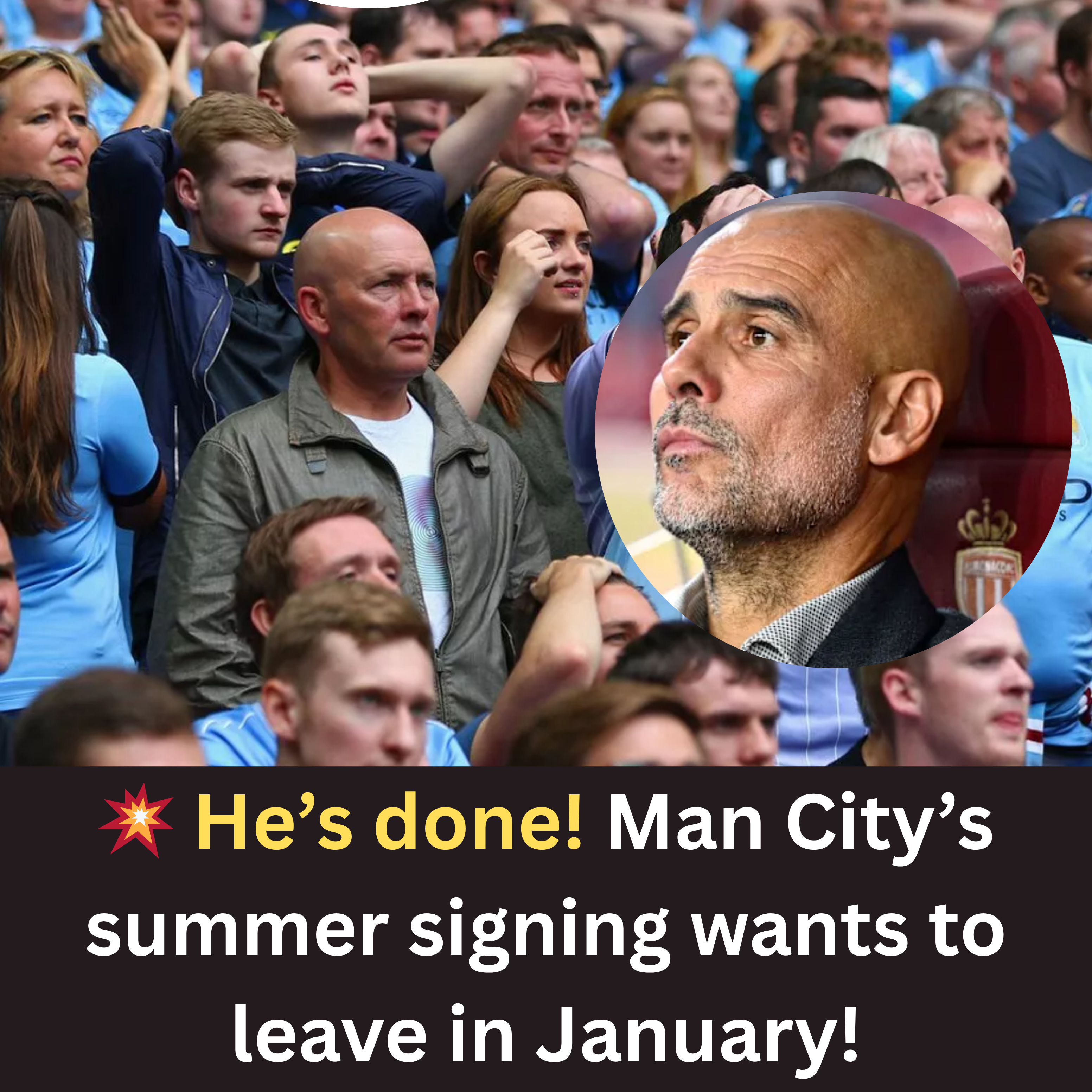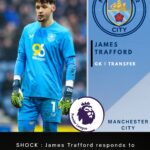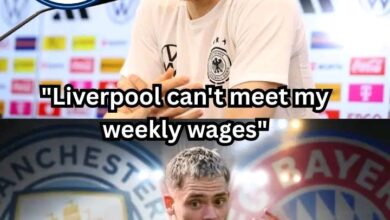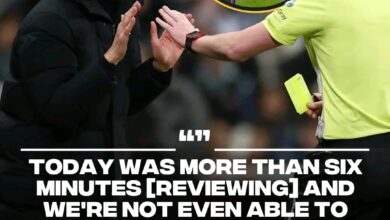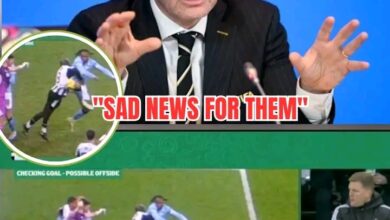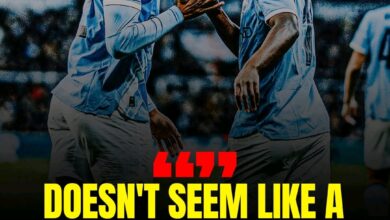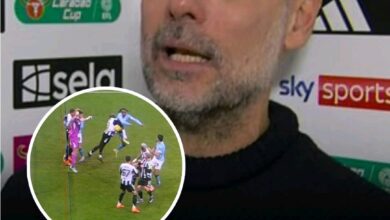Gary Neville says what fans are thinking about football right now with passionate rant over Manchester derby
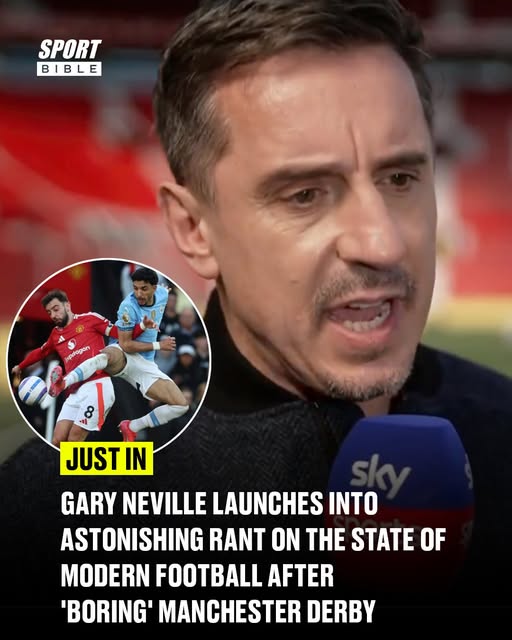
Gary Neville’s impassioned rant following the goalless draw between Manchester United and Manchester City at Old Trafford on Sunday has sparked plenty of debate, not just over the match itself, but over the broader state of modern football. For Neville, the Manchester derby—a game historically defined by intensity, passion, and fierce competition—was a disappointing affair that showcased many of the issues plaguing the modern game.
In a match that lacked the typical drama associated with one of the Premier League’s most iconic fixtures, Neville expressed his frustration over what he felt was a robotic and overly systematic approach from both teams. “It looks like a Sunday afternoon and they’re going to go for a roast dinner together now,” he said, referring to the lack of intensity on display. His criticism didn’t just focus on this particular encounter but highlighted a worrying trend he sees across much of modern football: the rise of micro-management and a lack of risk, courage, and unpredictability in the way the game is played.
Neville’s comments struck a chord with many football fans, particularly those who feel that the game has lost some of its rawness and emotion. But, as with most things in football, not everyone agreed with him. While some backed his view, others felt that United had been the better side and that City’s performance deserved more scrutiny. In this article, we will explore Neville’s critique in detail, look at the broader issues he raised, and consider the reactions of fans who felt both validated and frustrated by his comments.
To fully understand Neville’s rant, it’s important to break down the actual events of the Manchester derby itself. The match ended in a goalless draw—hardly a result that would excite the fans or players of either team. The first half saw Manchester United have the better of the play, with Alejandro Garnacho coming closest to breaking the deadlock, though he mistimed a header and failed to make proper contact. United’s tempo and intensity seemed to suggest that they might have the edge over City, but they were unable to capitalize on their opportunities.
The second half was less eventful, with City failing to show the same attacking flair that they are known for. Despite having four shots on target, their play lacked the creativity and fluidity typically associated with Pep Guardiola’s sides. United also failed to create clear-cut chances, and as the game wore on, it became clear that neither team had the cutting edge to finish off the match. It was a game that lacked the blood and thunder of a traditional derby, and this, Neville argued, is symptomatic of a larger trend in modern football.
Neville was highly critical of both teams for their approach to the match. According to him, both sides seemed too focused on adhering to tactical instructions and formations rather than expressing themselves creatively and taking risks. In his words, the game was “so robotic,” and he suggested that the micro-management of players by coaches has sucked the life out of the sport.
He argued that both Manchester United and Manchester City would have been disappointed with their performances if they were truly representative of the best teams in their respective histories. Neville compared the match to a Sunday afternoon gathering, where players seemed as if they were merely going through the motions, following their orders with little deviation. The precision of modern coaching, he argued, has stifled the natural flow and unpredictability that make football such a thrilling spectacle.
Indeed, many fans have shared similar sentiments about the increasing influence of data analysis, tactical drills, and match simulations in shaping players’ roles and decision-making. While such strategies have their merits, they also run the risk of making the game feel too predictable and mechanical, lacking the spontaneity and flair that once defined the beautiful game.
The robotic nature of the match was evident in the lack of risks taken by players on the pitch. Both teams were hesitant to take on their opponents in one-on-one situations or to attempt audacious passes that might break through a well-organized defense. Instead, the match played out in a controlled, almost sterile manner, with players sticking to their positions and responsibilities. Neville’s frustration was clear: football, particularly in a derby, should be a game of passion, courage, and daring, not one of conformity and caution.
Neville’s rant tapped into a wider frustration that many fans and former players feel about the current state of football. The increasing reliance on data analysis, high-tech coaching, and meticulous tactical planning has undoubtedly raised the overall level of play, but it has also led to a more cautious, controlled approach to the game. This shift has been especially evident in the Premier League, where teams seem to prioritize defensive solidity and structure over attacking freedom and individual creativity.
Many believe that modern football has become too predictable, with managers placing more emphasis on maintaining possession and staying compact rather than encouraging players to take risks in the final third. Players, too, are often more concerned with following tactical instructions than expressing themselves freely on the pitch. This trend has led to an overall decrease in the number of high-scoring, thrilling games, with more matches ending in narrow wins or goalless draws.
Some fans have expressed concern that the beauty and excitement of football is being lost as teams increasingly play within themselves, afraid to push too hard for fear of leaving themselves open to counter-attacks. Managers often set up their teams with an emphasis on balance and control, resulting in matches that lack the end-to-end action and unpredictability that fans once loved. Neville, in his commentary, seemed to be lamenting this loss of spontaneity and daring on the pitch.
Not all of Neville’s comments were universally accepted, however. Some Manchester United supporters felt that Neville’s criticism of their side was too harsh, particularly given the context of the match. United, after all, had dominated possession and created more opportunities than their City counterparts. It was evident that Rasmus Hojlund, United’s striker, had a difficult afternoon—he was often isolated and struggled to make an impact in the final third. But many United fans pointed out that the team’s inability to score was less about tactical rigidity and more about a lack of a clinical finish.
Several supporters felt that Neville had overlooked the positive aspects of United’s performance, particularly in the first half. The side created chances, dominated the ball, and played with energy. However, they lacked the cutting edge required to turn their dominance into goals. Hojlund, in particular, came under fire for his lack of involvement in the match. Fans were baffled by the graphic shown on Sky Sports, which revealed that his average position on the field was as deep as defensive midfield, just ahead of Casemiro. Given his role as a central striker, this was a troubling statistic.
One fan on social media noted, “United were so much better than City today, just a lacked a goalscorer, which is the story of the last few weeks really.” Another added, “City should get the criticism as they needed the win for top four, but it’s United who should have won the game.” These comments reflect a sentiment that many United fans felt—that the team did enough to win but was ultimately let down by their inability to finish chances.
One of the most talked-about moments in the first half came when Sky Sports aired an average position graphic for United. The positioning of Hojlund was alarming to many fans, as the Danish striker was shown to be positioned far behind the offensive line—close to defensive midfield and only narrowly ahead of Casemiro. This raised questions about whether Hojlund was being deployed in the correct role or if he was simply being isolated by a tactical setup that didn’t get the best out of him.
In the second half, United had a counter-attacking opportunity with four players in the area, yet Hojlund was nowhere to be seen. Instead, he was once again positioned deep in midfield. For a striker, this seemed like a major issue, and fans were left wondering why he wasn’t positioned higher up the field to take advantage of the space left by City’s defense. This lack of forward presence was particularly evident when United looked most dangerous on the break.
While Neville’s passionate commentary resonated with some fans, others felt that his criticism of the match and the modern game was overly simplistic. Many fans on social media agreed with Neville’s broader point about football becoming too predictable and safe, but some believed his assessment of United’s performance was a bit harsh. They felt that the team had played better than City and were unlucky not to win, as opposed to playing “robotic” football.
One fan responded, “Gary Neville is right about the system and the micro-management of modern football, but United played the better football today.” Another added, “I think the frustration is valid, but United’s lack of a clinical goalscorer was the bigger issue here.”
Despite these differing opinions, the consensus seemed to be that Neville had hit on something that many football fans have been feeling for a while: the excitement of the game is being replaced by a tactical rigidity that reduces the unpredictability and flair that once made football so thrilling to watch.
Gary Neville’s passionate rant following the Manchester derby was a powerful commentary on the current state of football. While the match itself might not have been a classic, Neville’s frustration highlighted deeper issues with how the game is evolving. Modern football, with its emphasis on data analysis, tactical precision, and systematic play, has arguably become too controlled and predictable. In the process, the spontaneity, creativity, and courage that once defined the beautiful game have been stifled.
Fans and pundits alike are increasingly questioning whether the sport has lost some of its soul, with too many matches being reduced to carefully choreographed affairs where risk and excitement are secondary to structure and possession. While there is no easy solution to this problem, Neville’s rant serves as a reminder that football should be about more than just tactical systems and statistics. It should be about passion, flair, and the willingness to take risks and make bold decisions—qualities that have historically made the sport so thrilling and captivating. Whether or not we will see a return to this style of play remains to be seen, but Neville’s passionate words have sparked an important conversation about the future of football.
